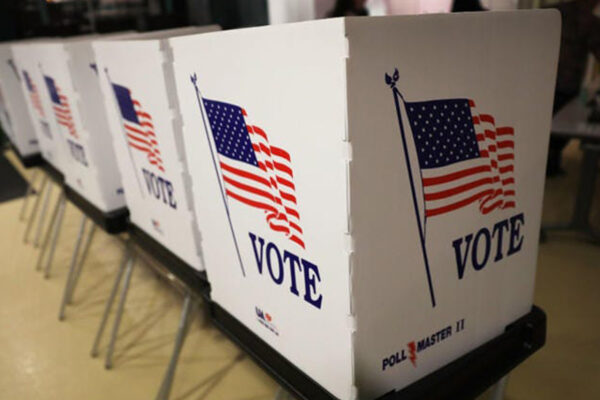Texas leads the country in the number of restrictive voting bills introduced in its current 2021 legislative session with 49 bills. Texas is already the hardest state in the country to vote, and these bills would only make it harder — and scarier — to participate in elections, especially for communities of color.
The two main bills are Senate Bill 7 and House Bill 6. The Senate bill limits voting hours, reduces options for mail-in voting, and raises barriers for people who need assistance to cast a ballot. The House bill adds severe criminal penalties to every aspect of the voting process, from serving as an election official or poll worker to volunteering and voting itself. We summarized what each bill is proposing below.
House Bill 6
The House Elections Committee heard 20 hours of testimony on HB 6 on April 1. The bill could be voted out of committee and scheduled for a vote by the full House.
- Limit voter information about their options to vote by mail: The bill prevents public officials from sending absentee ballot applications to eligible voters, unless the voter specifically requests an application. If you don’t already know about vote-by-mail options, your county clerk won’t be able to proactively help you get access to a ballot, even if you’re eligible.
- Make public service a crime: Public election officials could be charged with a felony if they violate the prohibitions on sending mail ballots to anyone who hasn’t specifically requested one.
- Allow poll watchers to intimidate voters: Poll watchers can be important observers of election activities at the polling place. But without reasonable constraints, they can also intimidate voters. The bill takes away the discretion of election judges to remove a poll watcher, even if they are intimidating voters.
- Make it even more difficult for voters who need assistance to get help with voting: Anyone who serves as a voter assistant already has to be recorded on the poll list when helping someone vote. Under HB 6, they would have to fill out an invasive form about why they are assisting the voter. And the voter assistant could be subject to a criminal offense if they fail to accurately complete the form. This bill also makes it a crime to violate the oath that assistants have to take, even if the assistant’s violation is an innocent mistake.
- Makes it a felony to be paid to assist voters, including voters with disabilities: It’s common for voting rights and disability advocacy organizations to have their staff work on get-out-the-vote activities around election time, assisting voters in applying for absentee ballots. Under HB 6, normal campaign activity could turn into a felony offense if it involves helping someone get an application to vote by mail.
Senate Bill 7
The Senate passed this bill in the middle of the night on March 31, following hours of public testimony. The Senate accepted some modifications from the original draft, but the bill retains the worst elements that will suppress voting in Texas if it is adopted by the House and signed by the governor. This is what’s at stake:
- Limit voting hours during early vote: The bill removes local election officials’ discretion to set voting times and eliminates overnight voting options that are popular with people who work nontraditional hours.
- Prohibit drive-thru voting or other kinds of mobile voting: When Harris County offered people the option to vote from their cars, voters loved this option for its safety and convenience, particularly people with health issues. SB 7 takes away this option.
- Limit voter information about their options to vote by mail: The bill prevents public officials from sending absentee ballot applications to eligible voters, unless the voter specifically requests an application.
- Allow poll watchers to intimidate voters: The proposal authorizes poll watchers to have free reign in polling places and places few limitations on their ability to take videos of voters.
- Criminalize public service: We depend on civil servants to run smooth elections. SB 7 threatens them with termination and loss of their pensions for making innocent mistakes.
- Put more polling places in the suburbs than urban areas: The bill contains a formula for distributing polling places that will force the biggest counties in Texas to move polling places out of communities of color and into whiter suburbs.
- Make it even more difficult for voters who need assistance to vote: Anyone who serves as a voter assistant already has to be recorded on the poll list when helping someone vote. Under SB 7, they would have to fill out an invasive form about why they are assisting the other voter. Also, SB 7 will force most people accompanying a curbside voter — including elderly spouses of senior citizens — to stand outside the car, no matter the weather conditions, while the voter fills out their ballot.


